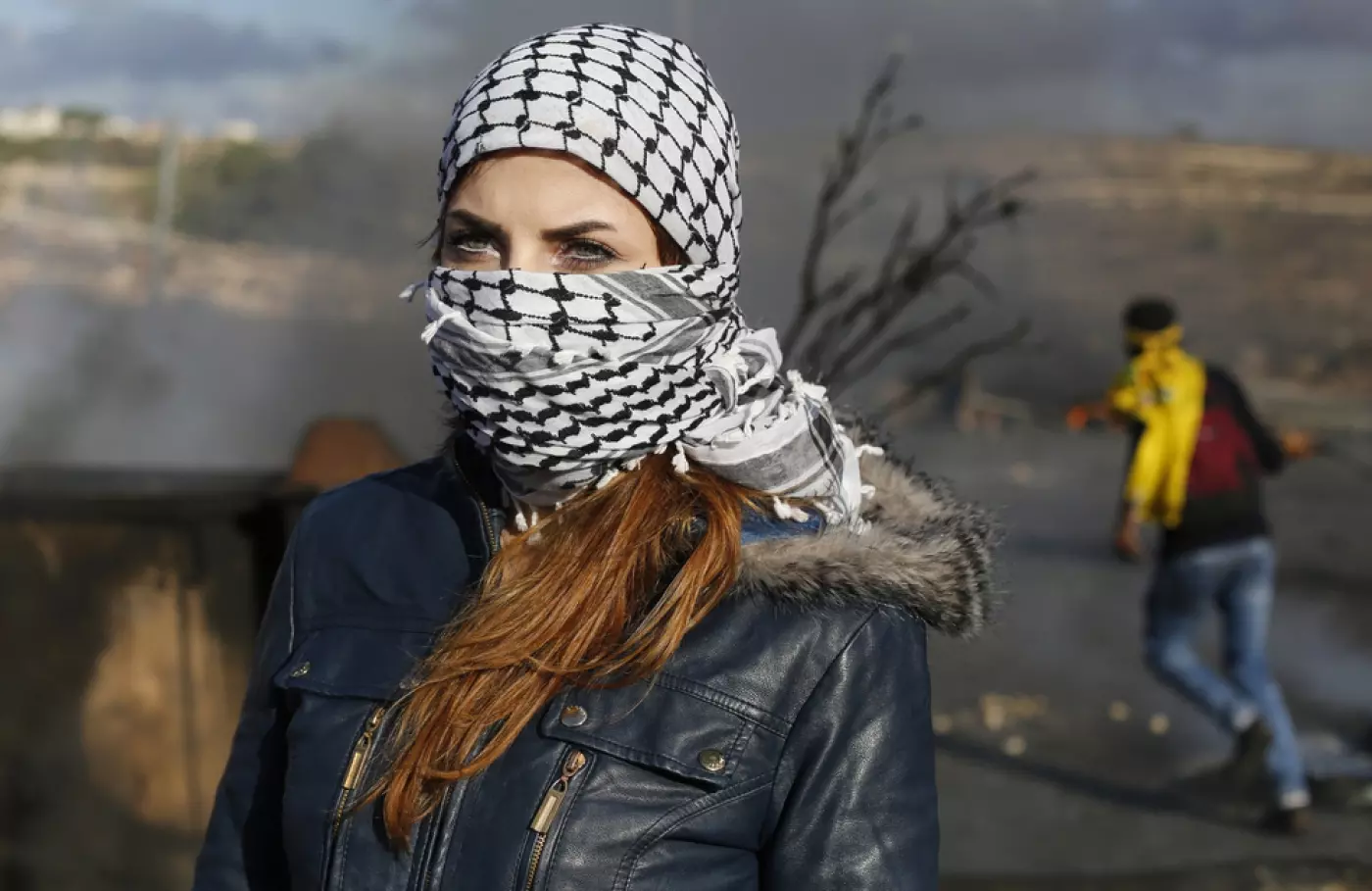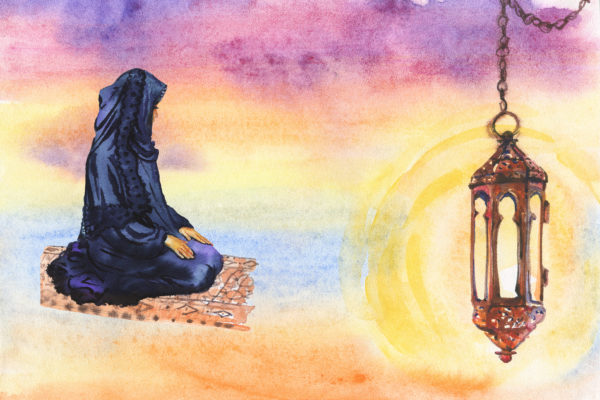The UN Special Rapporteur on violence against women and girls, Reem Alsalem, described Israel’s attacks on women and children as “relentless and particularly alarming.”
The UN Special Rapporteur on violence against women and girls, Reem Alsalem, described Israel’s attacks on women and children as “relentless and particularly alarming.”
This article was co-written by Arslan Mehndi Nekokara and Muhammad Umar Zafar
 Image of a Palestinian student from Birzeit University, her face covered with a traditional chequered keffiyeh. Source: AFP via Middle East Eye. Read more here
Image of a Palestinian student from Birzeit University, her face covered with a traditional chequered keffiyeh. Source: AFP via Middle East Eye. Read more here
One of the longest-running geopolitical conflicts in history, the Palestine-Israel conflict, is frequently explained in terms of political, religious, and territorial factors. However, another important layer lies beneath the main themes of occupation, resistance, and international diplomacy. This layer highlights the crucial role that women play in this intricate struggle.
Palestinian women, who have experienced violence, relocation, and political marginalisation, have grown into formidable change agents who challenge gender norms, promote peace, and spearhead community reconstruction initiatives.
Palestinian women have played a crucial role in the national struggle since the conflict began in the early 20th century. Women organised political groups took part in rallies, and established women’s unions during the British Mandate era.
According to a UN estimate, 750,000 Palestinians were forced from their homes when Israel was established in 1948, an event known in Palestinian history as the Nakba (the catastrophe). The cultural identity of the displaced people was preserved during this period thanks to the leadership and caring roles played by Palestinian women in their communities.
The Data
Several reports state that women made up about 30% of protestors. During the First Intifada (1987–1993), women began to take the lead in protests, smuggling food and medicine, and assisting male fighters with logistics. As women demonstrated that they were just as capable and dedicated to the cause as their male counterparts, these roles started to challenge established patriarchal norms within Palestinian culture.
In regions like Gaza and the West Bank, where political unrest and armed conflict have caused extreme poverty and social disintegration, Palestinian women are currently organising grassroots movements. For instance, well-known women-led organisations like the Women’s Centre for Legal Aid and Counselling (WCLAC) and the Palestinian Women’s Union have helped impacted women by offering career training, legal assistance, and psychological support. In 2022 alone, The WCLAC helped more than 2,000 women seek legal resources for family conflicts, domestic abuse, and human rights violations related to the conflict.
Recent estimates indicate that since 7 October 2023, civilian deaths in Gaza have been disproportionately high, with women and children making up 70% of the fatalities, and around one million people have been forced to flee their homes. The UN Special Rapporteur on violence against women and girls, Reem Alsalem, described Israel’s attacks on women and children as “relentless and particularly alarming.”
In Gaza, as of September 2024, there have been at least 40,939 Palestinian deaths, with women and children accounting for 70% of those killed. Palestinians have suffered 94,616 injuries, with a large number of people still unaccounted for, likely buried beneath the debris, and in need of rescue or retrieval.
The Influence of Palestinian Women
Significant contributions from women have been made to peace talks and political activism. International diplomacy has been influenced by individuals such as Hanan Ashrawi, a former spokesperson for the Palestinian Liberation Organisation (PLO).
Ashrawi played a crucial role as the first female member of the Palestinian National Council, providing a strong voice in favour of gender equality, human rights, and peace. Her role in the Madrid Peace Conference in 1991 set a precedent for women’s participation in high-level negotiations. According to data from the Arab Barometer, 60% of young Palestinian women expressed their political views online in the past, focusing on opposing the occupation, supporting gender equality, and promoting human rights.
Despite their significant contributions, Palestinian women have faced multiple challenges, such as economic hardship, patriarchal norms, and occupation. Women have been disproportionately affected by the military occupation, particularly in terms of employment, healthcare, and educational opportunities. Gender-based violence remains a serious problem.
A UN Women survey indicates that 37% of Palestinian women in the West Bank and Gaza have been victims of domestic violence. The occupation has exacerbated these problems by undermining social institutions, increasing stress and tension in homes, and restricting women’s access to legal support and protection.
Notwithstanding these challenges, Palestinian women have become influential advocates for justice and peace. Women’s peace initiatives, such as the Jerusalem Link, have sought to promote communication and understanding between Israeli and Palestinian women. Through groups like the Palestinian Women’s Coalition, women have advocated for the implementation of UN Security Council Resolution 1325, which calls for the participation of women in peace discussions and decision-making processes.
Playing a variety of vital roles in communities, political groups, and peace initiatives, Palestinian women have long been at the forefront of the struggle for social justice and national freedom. Their growing role as agents of change, whether through international campaigning or local activism, offers hope for a more equitable and peaceful resolution to the conflict.
It is crucial to support Palestinian women and strive for a future where justice, peace, and gender equality prevail.





